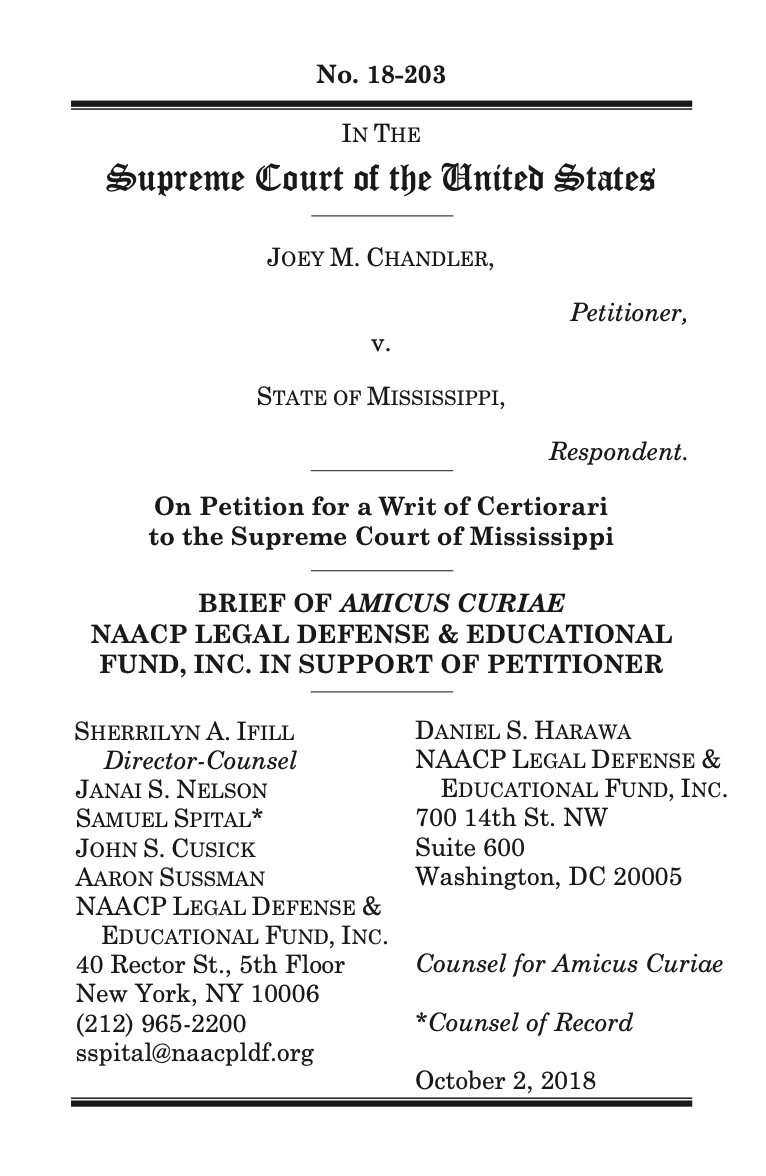
Summary of Argument
This Court's precedent is clear that children may be sentenced to die in prison only if they are among the "rarest of juvenile offenders" "whose crimes reflect permanent incorrigibility." In this case, the Mississippi Supreme Court failed to adhere to this precedent. It held that a judge need not make an incorrigibility finding before sentencing a defendant to life without parole for a crime he committed as a child and need not consider evidence of his capacity for rehabilitation. Without requiring such a finding, there is a real risk judges will sentence youth to spend their lives behind bars arbitrarily. With this arbitrariness comes another risk: the likelihood of judges disproportionately imposing life without parole sentences against African American youth.
The facts of this case highlight these risks and make it an ideal vehicle for this Court to address the proper application of Miller v. Alabama and Montgomery u. Louisiana. Joey Chandler, who is Black, was sentenced to life without the possibility of parole for a murder that he committed when he was seventeen years old. Mr. Chandler's crime undoubtedly warranted a serious sentence, but nothing about the circumstances of his crime suggested permanent incorrigibility. Indeed, over the next ten-plus years in prison, Mr. Chandler proved his capacity for rehabilitation by taking advantage of educational and rehabilitative programs in prison, building a strong relationship with his son and family, and maintaining a nearly spotless record. Yet, at a post-Miller resentencing, a trial judge again sentenced Mr. Chandler to life without parole. The judge did so without addressing whether Mr. Chandler's crime reflected "permanent incorrigibility" and without meaningfully reviewing the relevant factors this Court established in Miller or considering the evidence of Mr. Chandler's rehabilitation.
The Court should grant certiorari and hold that a judge must find permanent incorrigibility before sentencing a child to life without parole. The Court should do so to: (1) ensure juvenile life without parole sentences remain the rare exception and not the rule; (2) protect against racial biases affecting sentencing decisions; (3) guarantee meaningful appellate review; and (4) maintain the public's faith in the judiciary and norms of procedural justice. Consistent with Miller and Montgomery, this Court should ensure that judges consider the relevant factors before sentencing children to life without parole, especially the child's ability to live a productive adult life.